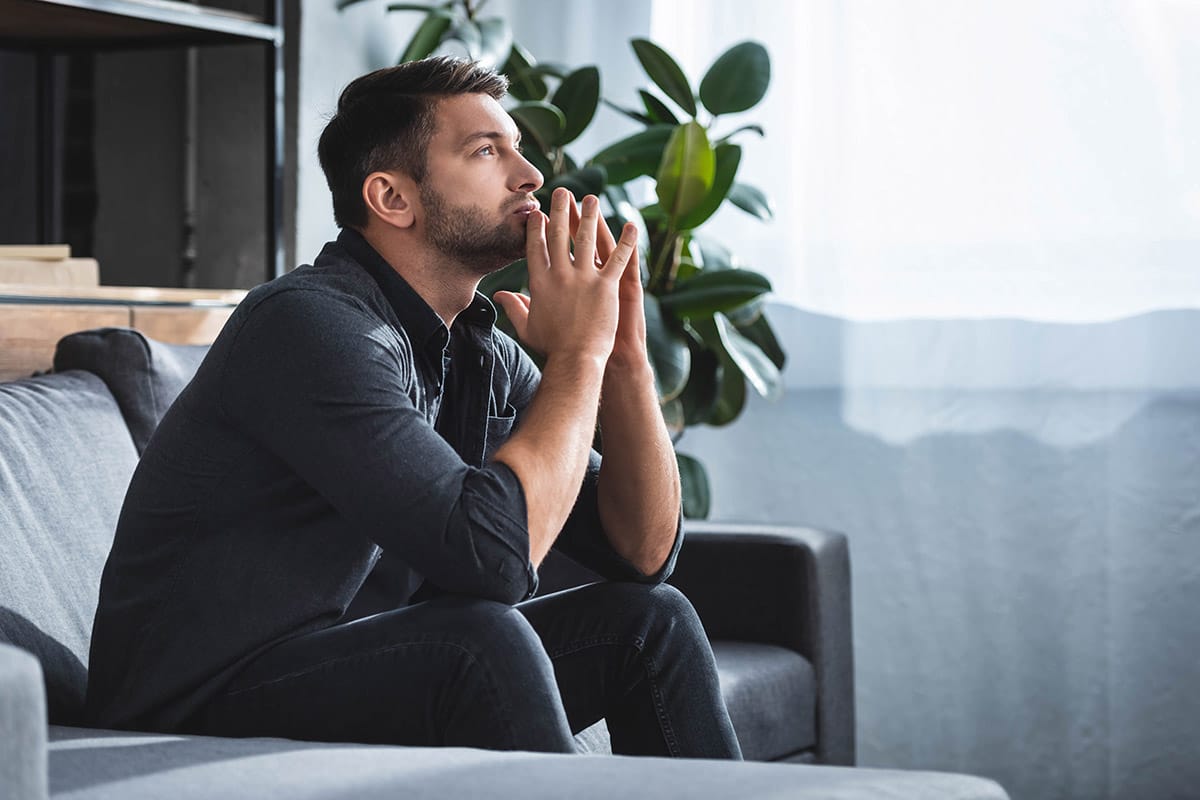Just as with other mental health concerns, anxiety and addiction often go hand-in-hand. A person may use drugs or alcohol to help alleviate the symptoms of anxiety. This is especially true for depressants, substances known to provide a feeling of calm and relaxation. Depressants can provide temporary relief from anxiety, but they do not solve the problem. An individual may develop a substance use disorder with continued use, but help is available with an outpatient addiction treatment program.
At BrightView, we are here to support patients diagnosed with substance use disorder and co-occurring mental health disorders. We understand how challenging it can be to find emotional balance until you have received treatment to manage anxiety and overcome substance use disorders. Reach out to one of our intake specialists today at 888.501.9865 to start feeling better tomorrow.
What Are Common Signs of Anxiety?
While you may feel emotional or physical discomfort, you may not realize that your symptoms are associated with anxiety. Sometimes, knowing why you feel the way you do can provide some relief. Understanding what is causing your symptoms can empower you to make changes to ease or even eliminate the symptoms altogether. Consider the following list of common signs of anxiety to determine if you should speak with a healthcare professional about your condition.
The most common signs of anxiety include:
- A nagging feeling of nervousness, often without an obvious reason
- Feeling sweaty, even when temperatures are comfortable
- A rapid heart rate, feeling like your heart is pounding out of your chest
- Feeling weak or shaky, similar to low blood sugar
- An inability to concentrate or focus on anything other than your worries
- Sleep disturbances, difficulty falling or staying asleep
Anxiety is not always caused by a specific event, so you may not realize that the discomfort you are experiencing is anxiety related. If you have noticed the above symptoms, it would be beneficial to undergo an assessment with a medical professional to get a proper diagnosis.
How Are Anxiety and Addiction Related?
Anxiety and addiction are related to one another, but their relationship is not always the same. In some cases, a person may feel relentless fear and worry and believe that the only way to settle their mind is with a drink or a pill. The immense relief they experience from substance use can be rather appealing and lead them to use these substances more frequently. As the rate of use increases, the individual may develop a full-blown substance use disorder.
On the other hand, there are some situations when substance use disorder is the catalyst for anxiety. For example, drinking alcohol can alter the levels of serotonin and other neurotransmitters in your brain. This change can instigate anxiety, especially as alcohol leaves your system, which can last the entire day after drinking. When the use of drugs or alcohol causes anxiety, it is sometimes referred to as substance-induced anxiety disorder.
Another way anxiety and addiction correlate with one another involves the exacerbation of current anxiety disorders. When you use a substance to self-medicate anxiety, that substance can increase the severity of anxiety symptoms as it wears off, even if it initially provides relief from them.
Some of the most commonly used substances to address anxiety are:
- Alcohol
- Xanax
- Valium
- Klonopin
- Ativan
- Marijuana
Some of the above substances are doctor prescribed and, when used as directed, can provide much-needed relief from anxiety. However, even prescription depressants can become habitual and lead to substance use disorder.
Help for Anxiety and Addiction
If you or a loved one are struggling with anxiety and substance use disorder, it is important to realize that help is available. The most effective way to address both anxiety and addiction is through integrated treatment. This type of care was developed by medical professionals as a way to give individuals the best chance of a successful recovery. Integrated treatment combines evidence-based therapies and medications to create an individualized plan that is tailored to the needs of each person.
By developing a personalized treatment plan, you can be sure that all of your needs are being met and that the approach to care is comprehensive. The goal of integrated treatment is to help you learn how to manage your anxiety and reduce or eliminate substance use. With the right support, you can live a life of long-term recovery.
Reach Out Today for Help from BrightView
Whether anxiety has led you to substance use or the other way around, BrightView is here to help. Our outpatient addiction treatment program can help you heal from anxiety and substance use disorder concurrently, so you can get back to the life you deserve. Call us today at 888.501.9865 to speak with an intake specialist.
